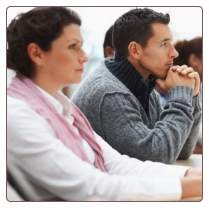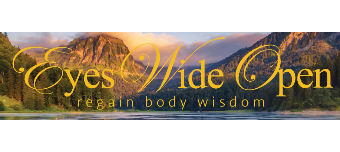 |
|
 |
|
“
”
This is the best overview of holistic methods of healing and the balance between the body's organs and systems that I have ever read. Silvia Casiabianca is to be commended for her knowledge, insight, and ability to explain it all in a beautiful way that also just makes sense. I recommend Regaining Body Wisdom book highly.
By Carlene Thissen
I recommend this book highly
|
|
 |
|
 |
|
 |
|
 |
|
 HEALTH ILLNESS THERAPEUTIC RELATIONSHIPS AND CULTURAL COMPETENCE
 |
|
Click to enlarge image(s)
|
At the Eyes Wide Open Center in Bonita Springs
6 FL CEUs counselors, nurses, nutritionists
Friday, February 19, 12 - 6 PM
The quality of care we offer as health providers depends a great deal on our cultural competence, our own worldview, beliefs about health and illness and moreover, on the way we perceive and establish relationships with the individual or family under our care. But no matter what our own beliefs are, the most important factor in our work is to be sensitive to the fact that not everyone sees life or for this matter, health, illness and healing, from the same perspective.
Instead of dismissing other people's beliefs and traditions because they differ from ours, or imposing our own values and beliefs, the most ethical approach for a health care practitioner is to become culturally competent and make her best effort to be culturally responsive by talking the same language and at the same level of understanding as the subject of her care. This doesn't mean we need to be bilingual, but it requires empathy.
This class offers the professional tools that will allow to better understand the background of people with different belief systems and different explanatory models for the world.
Facilitator: Silvia Casabianca, MA, LMHC – mail@silviacasabianca.com - (239) 948-9444
Objectives:
The training will help participants:
- Develop increased self-awareness of their own beliefs about their bodies, health and illness.
- Assess how behaviors, attitudes and knowledge about the body, health and illness impact intervention outcomes.
- Demonstrate receptivity and understanding of diverse belief systems on health and illness.
- Differentiate between Conventional, Complementary and Alternative Medicines and Folk Healing practices.
- Identify communication patterns that prevent open disclosure of relevant health practices from clients.
- Build in more complex, integrated and in-depth attention to cultural issues.
- Contextualize attitudes towards health practices within culturally acquired belief systems.
- Learn new behaviors, attitudes and ways to effectively respond to diverse beliefs on health and illness.
- Propose new ways to empower clients to break cultural barriers to health care.
Teaching approach:
Adult learning processes need to be experiential. Therefore, we will be building on your prior learning and experience and recognizing you have different learning styles. We will be contributing knowledge and learning from each other and I expect you to be an active participant in the learning process while taking responsibility for your own learning. For that, I expect you to share your experiences and beliefs and to be open to grow in awareness from this experience, exploring and transforming any possible limiting beliefs that you may still hold into cultural sensitivity and competence.
AGENDA
SESSION ONE – 3 hrs
- Introduction – Exploring own belief systems about the body, health, illness and healthcare
- Exploring culturally related beliefs and how they shape our healthcare related behaviors
- The body as a machine vs the intelligent body
- Intuitive wisdom v. learned knowledge
- New tools for understanding
- Client-centered care
- Family-oriented healthcare
- Influence of traditional folk healing on health care behaviors.
- Impact of the concepts about health, illness and understanding of the body on compliance.
- Common beliefs about mental illness, explanatory models, idioms of distress, help-seeking behavior, rituals, traditions and relationship between religion and mental health.
- Overview of Complementary and Alternative medicines
Mainstream CAMs
a. The good, the bad and the ugly – safe and effective CAMs vs. unsafe and ineffective
b. Evidence-based CAM
c. Conventional medicine, is it really evidence-based?
d. How our attitude towards their beliefs and values prompts disclosure or shuts them down
5. Across cultures: Curanderismo, shamanism (Talismans, herbs, desahumerios, magic
a. Energy healing, faith healing, miracles, witchcraft (Vudu, Santeria, etc
b. Mother Earth – our relationship with the planet – Earth-synthonic belief systems
SESSION TWO – INTEGRATING – 3 hrs
- Relationship between belief systems and access to health care
- How the quality of the communication with clients about health matters promotes or interferes with access to care, active participation in care and compliance
- Developing active listening skills
- Rules: no judgment, no comparisons, open questions, no impositions, no lecturing
- Building therapeutic alliances across cultures
The role of empathy and compassion in health care
How to encourage patients to be proactive in eliminating barriers
- Communication patterns: Symmetric vs. complementary
- Rights and favors – submissiveness and withdrawal
- Who is the expert?
- How to develop culturally appropriate health care interventions.
|
|
 |
|
 |
 Coupon
|
 |
|
 |
|
“
”
Silvia Casabianca brings her experience as a medical "jungle doctor" in Colombia to her deep knowledge of alternative medicine. The result is the best book I have read about Reiki, and other alternative medical approaches, which is very wise, not riddled with useless dogma, and centered in her continuing appreciation of what science has taught us. Definitely 5 stars.
By Roger Dunwell
Definitely 5 stars
|
|
 |
|
 |
|


 Home
Home English pages
English pages Spanish page
Spanish page Site Map
Site Map
